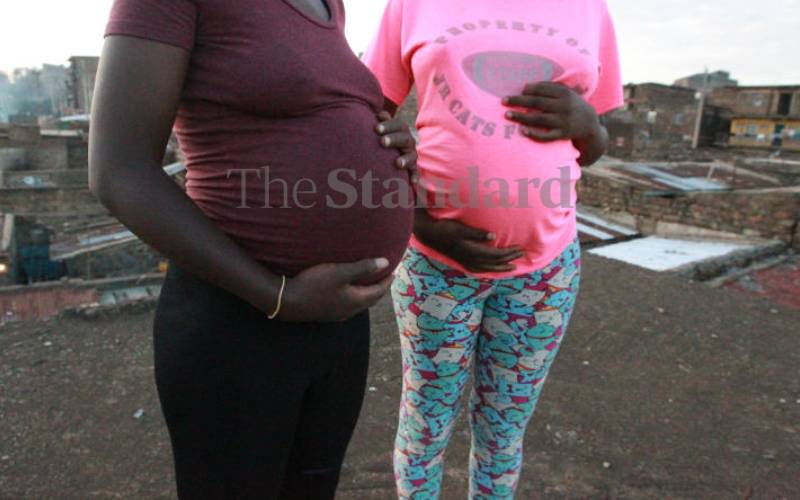×
The Standard e-Paper
Smart Minds Choose Us

Teenage pregnancy increased in urban slums as financial pressure on families intensified. [Jonah Onyango, Standard]
In some sections of the Kenyan society, the coronavirus is seen as an equaliser as it infects everyone without bias, but a scorecard on the impact of the Covid-19 pandemic indicates that schoolgirls from poor households have suffered more than any other social group in the country.